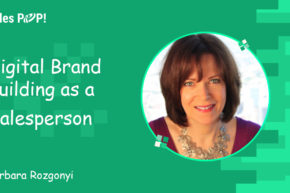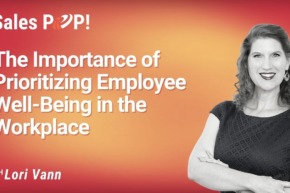We all hear people using the term emotional intelligence around, but do we really know what it means? In this Expert Insight Interview, Grant Herbert discusses emotional intelligence. Grant Herbert is a Founder of People Builders, an expert on emotional intelligence, a leadership trainer, and a keynote speaker.
The interview discusses:
- Defining social and emotional intelligence
- Looking closely at emotional intelligence
- The steps to a self-awareness
Social and Emotional Intelligence
The biggest mistake a person can make is to think of emotional intelligence as a feminine, soft skill and to decide to ignore it in favor of developing technical skills. Emotional intelligence is a set of skills that you can learn and use to reduce the conflict and stress in your life. Social and emotional intelligence is the ability to be aware of the emotions you are going through at the moment and the emotions that others could be going through at the moment so that you can manage yourself and your relationships with others by interacting differently.
Closer Look at Emotional Intelligence
To focus solely on emotional intelligence, that is specific only to you. It represents a complete awareness of your emotions and how those emotions affect your thoughts and behaviors so that you can shift to giving a response to the situation instead of reacting. However, self-awareness is easy to talk about but hard to achieve. People are usually unaware of their unawareness. To become fully self-aware, you have to be able to take accountability for your end-results and to stop blaming the world around you. For that shift in someone’s mind to happen, it usually takes a great pain or pleasure in life to triggers the desire for change.
The Steps to a Self-Awareness
There are three steps to go through. The first step is emotional self-awareness, which means recognizing the emotion that you are going through at that specific moment. The second step is self-assessment, which consists of empathy and achievement. Although everybody will say that they are empathetic, it is crucial not only what you think of yourself but how others perceive you as well. Third and the last step is personal power. This step embraces your authenticity, and it liberates you from all the false and limiting believes that you had. One of those beliefs could be an imposter syndrome. But, if you pause and try to think of evidence that can support that self-doubtful opinion that you have, the only thing that you will find is all the success you have achieved so far.
Our Host
John is the Amazon bestselling author of Winning the Battle for Sales: Lessons on Closing Every Deal from the World’s Greatest Military Victories and Social Upheaval: How to Win at Social Selling. A globally acknowledged Sales & Marketing thought leader, speaker, and strategist, he has conducted over 1500 video interviews of thought leaders for Sales POP! online sales magazine & YouTube Channel and for audio podcast channels where Sales POP! is rated in the top 2% of most popular shows out of 3,320,580 podcasts globally, ranked by Listen Score. He is CSMO at Pipeliner CRM. In his spare time, John is an avid Martial Artist.








Comments